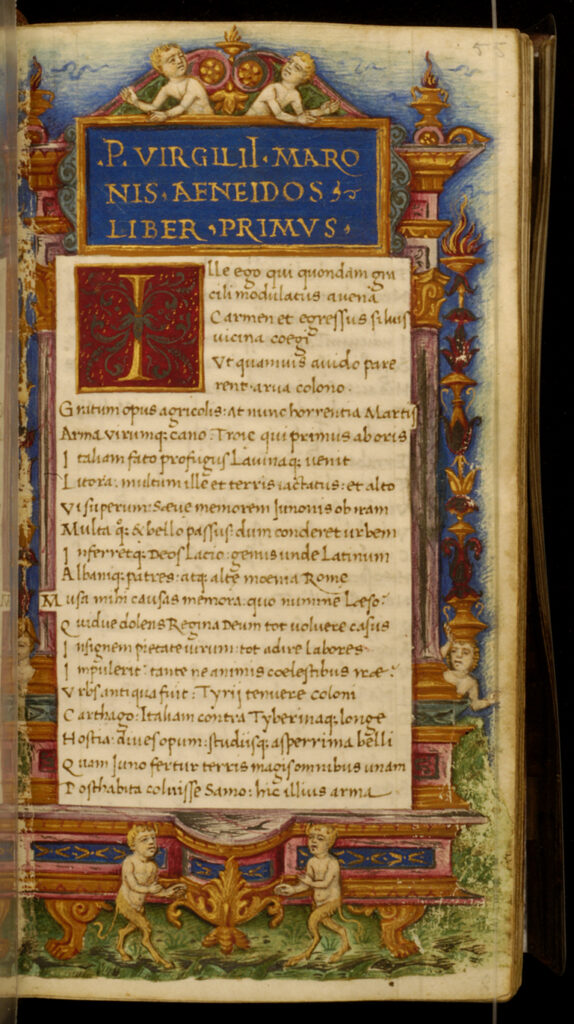Piddling about online, I came across this announcement:
The Roanoke County Public Schools is currently seeking applicants for a Latin Teacher for the 2023-24 school year.
In my day, Roanoke, Virginia boasted a half-dozen middle and high school Latin teachers spread across the school system. The two who touched my life had a love of Latin that shaped nearly four generations of students.
 The first, Jacquelyn Boeh (pronounced Bóo-ee), seemed old to us although she was probably 30. She was jovial and her teaching sparkled. Anyone choosing Latin had high hopes of a college education, although no certainty of reaching that goal.
The first, Jacquelyn Boeh (pronounced Bóo-ee), seemed old to us although she was probably 30. She was jovial and her teaching sparkled. Anyone choosing Latin had high hopes of a college education, although no certainty of reaching that goal.
In high school, my teacher became the stern Mrs. Marmion. For some reason, she is not pictured in my annuals so I cannot tell you her first name, although it was probably Alba or Claudia—that’s how deeply she embodied Latin.
Now Mrs. Marmion was really old (I’m guessing 57). Ramrod straight and equipped with the proverbial yardstick used as pointers in the chalkboard era, she had an aura that caused a student to walk more crisply entering her classroom. We could earn her praise, but only with quality work. Is that not how things ought to be?
It had become clearer in high school who might be fortunate enough to be “college bound.” Those students usually stayed with Latin, while others shifted to French or Spanish, or even German for their required second year of language. After all, those languages were practical (such sentiments already were voiced, to the sorrow of Latin teachers everywhere).
Third-year Latin involved an intensified study of grammar, and I remember it being hard. Then, in fourth year, the clouds lifted as we focused on translating passages from the Aeneid. In retrospect, we really were an elite group in fourth-year Latin, headed for the study of medicine, law, the humanities (in their classical renderings), or, in my case, music.
Since there was no 5th-year of Latin class, I can’t remember how I ended up with five years of Latin. Yet upon finishing 4th year, my mother wanted me to have more, so I recall sitting in the fourth-year class and doing more advanced work. Today we’d call it Independent Study. Back then it was just weird.
I was already weird, though. My odd-status may have begun by starting Latin in 7th grade. The fact was, my mother would not let me “sit around” waiting for language study to start in the 9th grade. Coming out of an impoverished, Depression-era New York City public school system, she nonetheless knew kids should start foreign languages young. She herself had started French by 5th grade, and that was already late, she often remind me. She was appalled to see the Roanoke schools failing in this mission.
The real question was, how did my mother negotiate getting me, a scrawny, bifocaled seventh grader, into a 9th-grade Latin class? Likely the same way she got me into a summer typing class at Roanoke’s National Business College when I was between 6th and 7th grade.
Learning to type at age twelve sounds unimpressive in an era when preschoolers live on computer keyboards, but students back then took typing in the junior or senior year of high school before hitting the job market or going to college. A business school turned high school abilities into professional job skills, adding shorthand, dictation, filing, and other now-obsolete office tasks. Simply put, rising 7th graders did not go to adult business school.
But there I was, sitting on pillows to reach the typing tables. The problem was, I wasn’t going to get to 7th grade because of my poor handwriting. My mother fought against the idea of holding me back by negotiating a deal with my sixth-grade teacher, Mrs. Shelton. I would learn to type, and she would pass me on. So there I sat in a row of red-lip-sticked “grown-up” gals who wore perfume and even smoked. But this allowed me to get to the 7th grade. And that allowed me to take Latin.
You see how it all fits together?

I have to say, Latin was nearly the best part of my high school experience, and that says a lot considering we had exemplary teachers and curriculum across the board. We read real novels, we learned serious history, and we wrote real papers. And yes, Latin helped with all that. But that was just one benefit, comparable to a teaspoon of baking powder in a ravishing, multi-tiered wedding cake encased with marzipan frosting. I do not have room in this essay to tell you the seeds that the study of Latin planted, nor describe the countless times my ability to learn, work, and enjoy things was strengthened because of it.
But ah, not enough people tasted that cake once progressive education wreaked its damage in the 1960s. And Latin went away. Consequently, it is fabulous to see what is happening now. Everywhere I look, Latin is popping up: even “my” Roanoke is seeking a new Latin teacher. It thrills me.
At least it did thrill me until I saw the job description posted below the announcement:
The teacher will plan and provide for appropriate learning experiences for students. Provide an atmosphere and environment conducive to the intellectual, physical, social and emotional development of individuals to ensure success for every student. Supervise students in a variety of school related settings. Monitor and evaluate student outcomes. Communicate and interact with students, parents, staff and community. Develop, select and modify instructional plans and materials to meet the needs of all students. Maintain appropriate records and follows [sic] required procedures and practices. Monitor appropriate use and care of equipment, materials and facilities.
Yikes! Did you see the word Latin mentioned? Did you see any words like vocabulary, translation, classics, mastery? I did not either. I see bureaucratese which means absolutely nothing.
Please tell me not to worry, and that this meaningless prose accompanies every job description today in public schools. Let that be the explanation, because when I see prose like this, I want to chop it up into a hundred pieces. And when I see such prose within a twenty-foot radius of something as beautiful as Latin, I want to obliterate it with a fire extinguisher.
Carry on, ye new generation of learners and teachers of Latin. And if you have to walk through such bureaucratese, just pull the roots of each vacuous word out of your pockets and wave them in victory.




Thank you for this post, Carol! I treasured my four years of Latin in Roanoke County Schools. Knowledge of Latin helped me immeasurably as I completed college and graduate school and entered the workforce. I still draw on that knowledge daily and always will. A few years ago, I was shocked and disappointed to learn that the large Maryland school system where my niece and nephew are enrolled does not offer Latin. What an enormous missed opportunity for them and thousands of other students. I’m happy to see that Roanoke County has not followed the same path.
Carol, this is another one of your posts that hits close to my home.
I took three years of Latin, even though people called it a “dead language”. But, it was what I had to take if I wanted to be a lawyer (my goal at the time).
After three years of conjugating verbs, I decided I really didn’t want to be a lawyer!
But, what you really get at, and should be something we all should agree on is that schools need to get back to the basics–and the classics.
Yes, the world is changing, but not all for the better. Saner minds need to take charge, and make sure our kids and grandkids can spell, add and read before they start on social issues.
Perfect timing, Professor Carol! Some friends and I are starting a classical high school in southeast Indiana, not too far from Cincinnati. One of my tasks is to delineate texts to use for 4 years of Latin… but thankfully this path has already been trod. We are returning to something, not manufacturing from thin air. At any rate, we’ll be sending people to your post at our Fiat Classical Academy info nights to remind us all why we bother to deep dive into Latin. Unbeknownst to you, your post is an unbidden confirmation of the language trajectory decision we have made. Manifold blessings!